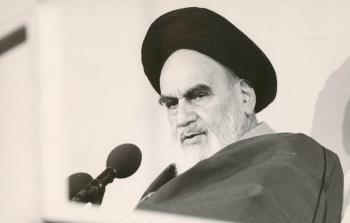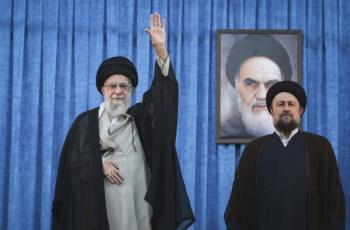Alwaght_ A political delegation of Afghan Taliban headed by "Tayyeb Agha" had a trip to Iran. The delegation consisting of members of the group's Qatar-based political office, on Tuesday arrived in Tehran. ‘Tayyeb Agha’ head of the Taliban's Qatar-based political office, was leading the political delegation of the Afghan Taliban on this trip. The delegation on a visit to Tehran, held talks with the security officials of the Islamic Republic of Iran and discussed a number of regional issues, especially the issues of the Islamic world, ISIS penetration into Afghanistan and issues of Afghan refugees in Iran.
Muhammad Ismail Qasimyar, the High Peace Council's (HPC) advisor for international affairs, confirmed the news. From the political office of the Taliban, a group of seven to eight people residing in Doha, Qatar, has travelled to Tehran. Although no news was released about the delegation’s meetings in Tehran, "Tayyeb Agha" has been the chairperson of the delegation, the head of the Taliban's political commission, and Qari Din Muhammad Hanif, Sher Muhammad Abbas Stanikzai, and Abdulsalam Hanafi were among the members of the delegation.
Political delegation of Afghan Taliban had been to Iran twice to visit the security officials of the Islamic Republic of Iran and to attend the International Conference on Islamic awakening. Taliban had already declared that its goal of establishing a political office in Qatar was to develop relations with other countries, for this purpose, since opening the office, its members have frequently travelled to various countries, including China, Australia, Germany, Japan, and some other countries.
The visit followed ‘Pugwash Conference’ in Qatar, where the Taliban and the Afghan government representatives met informally. After the conference, the Taliban went to Tehran at the invitation of Iranian officials to exchange ideas on issues of interest. Taliban held talks about its operation beginning this year called Azm, literally meaning determination, and its success in war against government forces in northern Afghanistan. They clarified their views about peace and reiterated that there has been no meeting about peace between them and representatives of the Afghan government, because the government wants to establish peace in through Pakistan. Taliban delegation also expressed its views on the obstacles to advance peace talks in Afghanistan, of which, the presence of foreign forces in the country, was at the top of the barriers.
The issue of Afghan refugees was also discussed in Taliban negotiations in Tehran. The news circulates that so far a number of Afghan civilians were sent to Syria to stand by the forces of Bashar al-Assad and fight against the ISIS. Some of these people have been detained and some were killed. There are rumors about some of these people being sent to be Yemen. Taliban is worried that these events might stimulate the religious feelings in Afghanistan and consequently provide an opportunity for the ISIS to recruit.
ISIS might become active in Afghanistan. ISIS has already begun its activities in some parts of Afghanistan, and even have launched some military operations. Iran, which has a long border with Afghanistan, is concerned that in eastern border and in Afghanistan, even within Iran, it might face issues that are now facing in its western border, especially in Iraq. Iranian officials want to know to what extent the reports about the presence of ISIS and military conflicts between Taliban and ISIS in Eastern Afghanistan are serious. Nevertheless, Taliban is worried about the incentives that may give power to ISIS in Afghanistan.
During this visit, they discussed the role of regional and neighboring countries in the peace process; they also discussed the positive role of China in this process. In this regard, ‘Qari Din Muhammad Hanif’ talked about his meeting with Chinese officials, and the Iranian authorities expressed readiness to assist the peace process in Afghanistan. It should be noted that the Taliban had already been to Iran twice, and even was invited to participate in international conferences, such as the Islamic Awakening Conference. Zabiullah Mujahid, a Taliban spokesperson, in a statement sent to the media on 21 May, confirmed that Taliban delegation’s trip to Tehran, and said it is a part of regular trips to other countries, to exchange views with the officials.
Another issue discussed in these meetings was the war in northern Afghanistan, which has raised concerns in the region, particularly among neighboring countries. The Russian interior minister made a visit to Kabul this week and in his meeting with Afghan officials including the president, discussed conflicts in the northern Afghanistan, particularly Kunduz.
In fact, for various reasons, the Taliban and the Afghan national unity government are more than ever close to compromise with each other; besides, the efforts made by the new Afghan president, Ashraf Ghani were also very effective. Regardless of the trustworthiness of the parties involved in the peace negotiations, it is clear that both the Afghan government and the Taliban as the two conflicting parties as well as regional and international supporters of both sides, seek their own interests rather than providing security in Afghanistan.
The US, the West, and Arab countries seek to pose a serious threat to Iran through ISIS. The financial resources of the Taliban have been reduced or cut off and they just want to provide ISIS with financial and military support. General Campbell, commander of NATO forces, has clearly admitted that ISIS is recruiting for the Taliban. In fact, the West is just pursuing multiple approaches to Afghanistan, and they need ISIS and the like to continue the occupation of Afghanistan.
Participation of the Taliban in Afghanistan power structure and bringing them from the military sphere to the political one is a strategic plan that Pakistan and the United States have focused on. However, the Taliban is against Pakistan policy and believes that peace through Islamabad is not an appropriate option and insist that real peace must take place after the complete withdrawal of the occupation forces.
However, in recent years, several international, regional, or trilateral meetings were held in most European and Asian countries in the name of peace negotiations with the Taliban, and the Taliban delegation’s trip to Iran and exchanging views with the Iranian officials are quite natural, and such a trip to Iran does not imply that Iran gives unconditional support to Taliban. For sure, the representatives of the Taliban during their trip or while attending conferences and meetings, seek to express their views as it is, not the way the US and some regional countries convey, and mainly exploit the Taliban as a tool to achieve their own interests. Currently, due to the security situation in the region, they seek to spread terrorism under the guise of ISIS in Afghanistan.

























